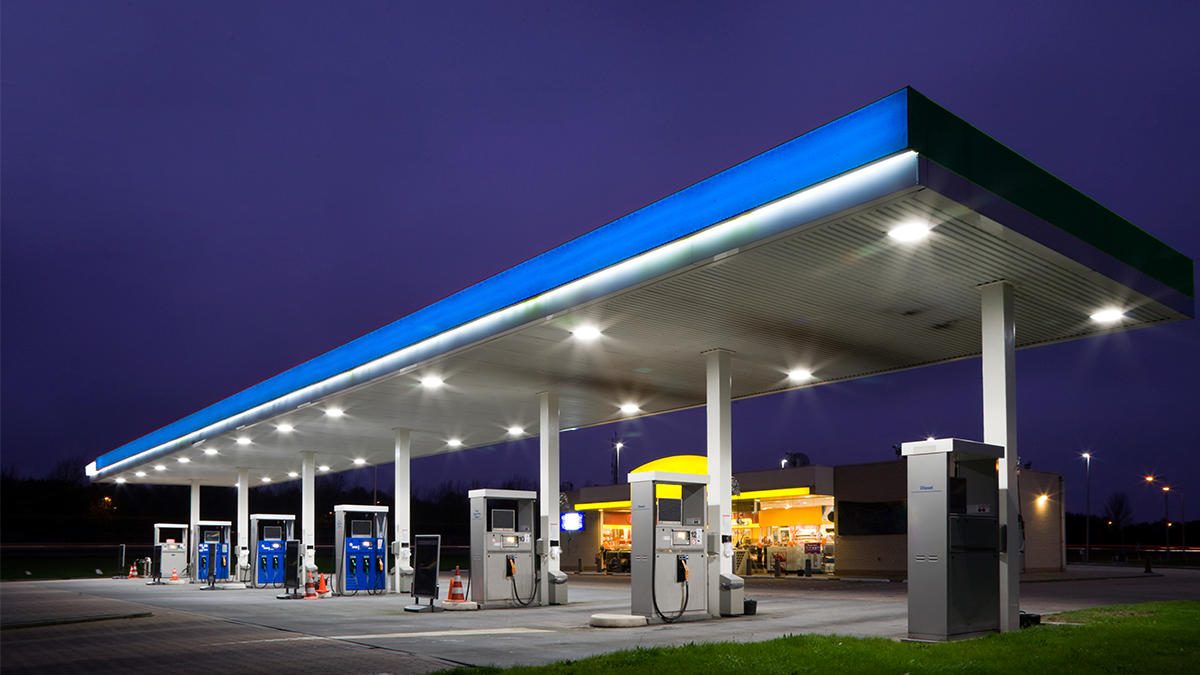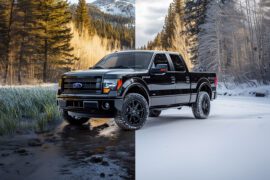When buying a vehicle, its fuel source is an important factor to think about. Some vehicles run on plain gasoline, some require premium, and then: there’s diesel. There are some major differences between gasoline and diesel to keep in mind. So if you’re wondering if you should buy a gas or diesel vehicle, we’ve compiled some comparisons between gas and diesel to help you make your decision.
What is diesel, anyway?
Diesel is made from fossil fuels just like gasoline, but the distillation process itself is different. Lighter gasses that come from the process are refined into gasoline, and some of the heavier gasses become diesel. A huge difference in how it functions regarding vehicles is the internal combustion process. Diesel engines function by igniting fuel via internal compression. The compression of a diesel engine is enough to combust the fuel internally. Gasoline engines, however, rely on a spark plug to ignite the fuel and air mixture.
Fuel Efficiency
As far as fuel efficiency goes, diesel holds the advantage. Diesel contains more energy than gasoline, so less fuel is required to propel the vehicle. The U.S. Department of Energy reports that diesel vehicles are approximately 30% more fuel efficient than their gasoline fed counterparts. Because of the increased punch in energy, diesel also provides more low-end torque making acceleration more powerful.
It’s important to note that the gap between gas and diesel diminishes with city driving, so the real advantage for diesel is highway mileage.
Trailers and towing
Since diesel has a higher compression ratio and subsequently produces more torque at lower RPMs, it’s better for trailering and towing. More torque means better acceleration from a dead stop, so getting going with a heavy load is significantly easier and diesel engines handle it much better. Although, the higher torque of diesel engines isn’t matched by the horsepower put out by those powered by gasoline. Diesel engines aren’t quite as fast as gasoline engines, but they are very useful in this regard.
Initial costs
Diesel vehicles start off more expensive right off the get go. They can cost anywhere between a few hundred and thousands of dollars more than a gasoline model, but they depreciate at a much slower rate. Insurance is typically 10-15% more expensive as well. Insurance companies consider maintenance, parts, and repair costs into your policy rates, and diesel vehicles typically cost a little bit more in those areas as well. In terms of long-term investments, keep in mind that initial costs may be offset by resale value if you don’t plan on owning the vehicle until it no longer operates.
Maintenance and repairs
Diesel engines require less maintenance than gasoline engines. No spark plugs required, better fuel efficiency, and heavy-duty components are all factors that lead to less wear and tear on the engine. Certain maintenance costs can be significantly more expensive for diesel, including engine oil, so repair costs for diesel vehicles are typically higher. Parts can be significantly more expensive, and if you don’t keep up on regular maintenance for a diesel vehicle it will cost you in the end.
Engine longevity
Diesel engines are built differently, as they rely on compression for combustion rather than spark. They’re built a bit tougher than gasoline counterparts, and thus require less maintenance and experience a longer lifespan. They are simpler engines, since they don’t need spark plugs and electrical systems to generate that spark. Less parts, less chances for things to go wrong. You do need to keep up with general maintenance just like a gasoline engine, otherwise lots of things can go wrong.
Resale
Gasoline vehicles are less expensive than diesel vehicles from the onset, but they depreciate rapidly compared to diesel vehicles. Resale for diesel vehicles has been reported at 30-50% higher for cars and smaller SUVS and up to 70% higher for medium-duty trucks, according to greencarreports.com, so diesel takes this category. If resale is a factor for you, diesel may be the way to go.
Environmental impact
There are a number of factors to consider here. Diesel engines emit more nitrogen compounds compared to a gasoline vehicle equipped with a catalytic convertor.
That being said, emissions standards have made diesel outputs similar to that of gasoline since the 2010 EPA diesel emission requirements.
It’s also worth noting that diesel may emit more greenhouse gasses when consumed compared to gasoline, but the rate of consumption is significantly lower than regular gasoline. The emissions by a vehicle that has either gas or diesel options may end up being comparable for modern vehicles.
So, should you buy a gas or diesel vehicle?
Ultimately, it’s up to you. It depends on what you’re using the car for, your initial budget, how much you’re willing to spend on repairs, how much resale value means to you, and more. While gasoline is the most common fuel in the auto industry, AutoBidMaster has plenty of diesel options up for auction. Whether your looking for clean or salvaged title diesel vehicles, start your search with us here.
- Is Buying a Hail Damage Car Worth It? A Detailed Guide - December 2, 2024
- Affordable Luxury: The Best Budget Luxury Cars for Families in 2024 - November 21, 2024
- How to Lookup a Motorcycle’s VIN Number - November 14, 2024






